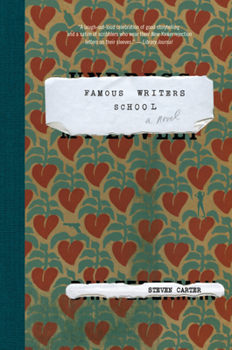Famous Writers School
Select Format
Select Condition 
Book Overview
A genre-bending romp that is at once reminiscent of Raymond Carver and Carl Hiaasen. Steven Carter, who has been called madly inventive (Kirkus Reviews) and darkly comic (Village Voice), has a genius for letting his characters speak for themselves, and here they do so quite literally. Famous Writers School is composed of three aspiring authors' letters and stories sent to a correspondence course by that grandiose name, and the self-serving lessons that Wendell Newton, their endearingly obtuse instructor, doles out in response. Wendell's oddball collection of students includes Rio, an alluring blues singer on whom he quickly develops a crush; Linda Trane, an unhinged housewife who may be stalking him; and Dan, a truly talented author of hard-boiled detective fiction. As Dan's gritty mystery arrives piece by piece, Wendell gets hooked on the story--and decides to dress it up in his own style in order to pass it off as his creation.
Format:Hardcover
Language:English
ISBN:1582433569
ISBN13:9781582433561
Release Date:September 2006
Publisher:Counterpoint LLC
Length:256 Pages
Weight:0.90 lbs.
Dimensions:0.9" x 6.0" x 8.3"












